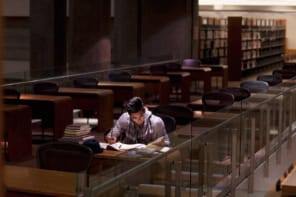Apoorva Jayaraman is a Bharatanatyam artiste who performs solo concerts and conducts workshops across the world

What sparked your interest in physics?
I suppose I was always captivated by the mysteries of the night sky, even as a child. But it was during my undergraduate years that the faculty at St Stephen’s College in Delhi, India, made a deep impression on me with their passionate approach to the subject. A physics teacher at school once quoted Henri Poincaré to me, who said “a scientist delights in science not because it is useful, but because it is beautiful”. Sitting in a classroom, I was not using physics merely as a tool to solve textbook problems, but was learning to ponder over the implications of a law, to investigate the validity of a result, to value the insight of instructive approximations – I think that is where I truly started seeing the beauty of physics and seriously engaging with it.
Did you ever consider an academic career?
I did not undertake my journey in physics as a necessary stepping stone to academia. When I began my PhD in astronomy at the University of Cambridge, I was really quite open to the possibilities after. I always knew that dance would be a big part of my life, whether professionally or not, and that my professional choice would be greatly influenced by this factor. During my PhD, I definitely contemplated doing a postdoc and I did consider a career in astronomy teaching.
How did you get interested in dancing, particularly the traditional Indian dance Bharatanatyam?
I was exposed to Bharatanatyam as early as the age of four, through a teacher who came to my kindergarten class to tell stories through the medium of dance. I was drawn not necessarily to the genre, but to the fascinating world of dance-theatre that it embodied, which has a powerful potential for narration. I started formally training in the dance form at the age of five. I was fortunate to find good teachers along the way, but it was my mother’s influence on my learning process that made me see and experience greater beauty in what I was doing. This is probably what transformed an engaging hobby into a passion that began to deeply influence my life.
What were some of the challenges transitioning from academia to performing arts?
There is no laid-out career path in the performing arts. You steer it where you want to, and your ascent is as fast, as far and in the direction that you determine. While creatively this could be true of both disciplines, in terms of career progression, the performing arts is not supported by any established ecosystem in India. This has obvious repercussions on its financial viability as a career choice. I think it is fair to say that science accords a relatively high degree of genuine equality in the workspace. Good ideas are recognized no matter who they come from. Professional growth is, by and large, proportional to merit. Coming from such a space to the world of art, which is intrinsically non-quantitative and unstructured, was a sort of culture shock and took some time to realign to. Apart from these differences, I have found that the two areas of study reconcile fairly elegantly.
What are you working on now?
I am currently under a fellowship from the Government of India’s Ministry of Culture, which supports my research proposal to study the role of Indian performing arts in the advancement of knowledge. Artistic pursuits in the Indian subcontinent – such as classical dance and music – are vitally linked to the quest of the human mind for higher knowledge. This accords Indian classical art a seat of gravity that raises it beyond being an isolated pursuit of aesthetics or beauty. I am investigating ideas of embodied learning, abstraction, and the role of art in training and sharpening the cognitive and intuitive faculties. This month, I am organizing a national conference on dance for young professionals in the field of Bharatanatyam, to deliberate on the motivations, purpose and scope of Indian classical dance as a discipline. For the first time within the community of performers, I hope to expand the discussion to include evolutionary and cognitive studies and art as an enquiry into reality. December is also the high season of classical music and dance in Chennai, where I live.
How has your physics background been helpful in your work, if at all?
Doing research in physics has trained me to be aware of what I do and don’t know, in any given context. I have a fairly critical assessment of the quality of my ideas and the robustness of my current understanding of them. This has lent conviction to my work in the performing arts beyond the realm of performance.
Any advice for today’s students?
An education is to prepare you for life, not necessarily to prepare you for a profession. Don’t be afraid to seek an education that is independent of a specific professional or vocational choice.
- Enjoy the rest of the December 2017 issue of Physics World in our digital magazine or via the Physics World app for any iOS or Android smartphone or tablet. Membership of the Institute of Physics required



